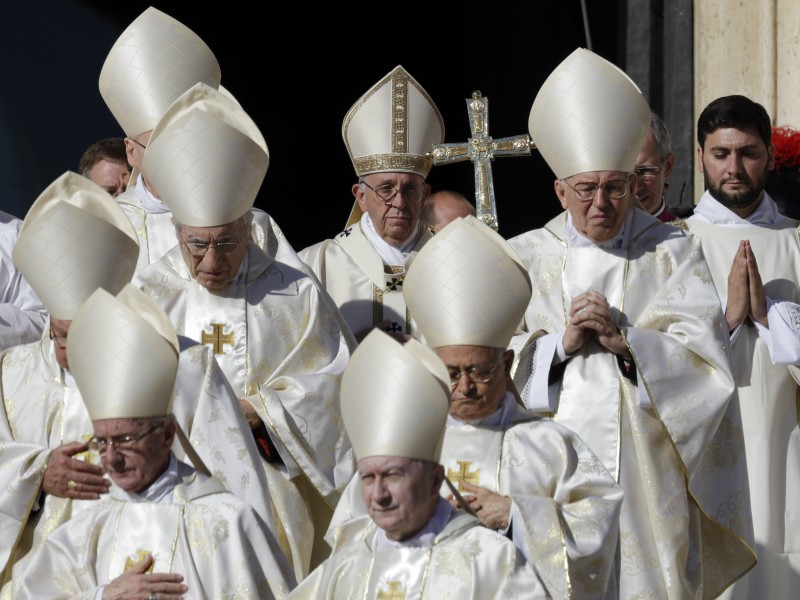VATICAN CITY (AP) — Pope Francis on Saturday (Nov. 11) reaffirmed the “primacy” of using one’s conscience to navigate tough moral questions in his first comments since he was publicly accused of spreading heresy by emphasizing conscience over hard and fast Catholic rules.
COLUMN: Papal loyalists become dissidents
Francis issued a video message to a conference organized by Italian bishops on his controversial 2016 document on family life, “The Joy of Love.” The document has badly divided the Catholic Church, with some commentators warning that it risked creating a schism given its opening to divorced and civilly remarried Catholics.
Francis told the conference that priests must inform Catholic consciences “but not replace them.” And he stressed the distinction between one’s conscience — where God reveals himself — and one’s ego that thinks it can do as it pleases.
“The contemporary world risks confusing the primacy of conscience, which must always be respected, with the exclusive autonomy of an individual with respect to his or her relations,” Francis said.
Francis reaffirmed the centrality of “The Joy of Love” as the church’s guide to Catholic couples today trying to navigate the ups and downs of complicated family situations.
RELATED: Conservative theologians accuse pope of spreading heresy
When it was released in April 2016, “The Joy of Love” immediately sparked controversy because it cautiously opened the door to letting civilly remarried Catholics receive Communion.
Church teaching holds that unless these Catholics obtain an annulment — a church decree declaring their first marriage invalid — they cannot receive the sacraments since they are seen as committing adultery in the eyes of the church.
Francis didn’t give these Catholics an automatic pass but suggested that bishops and priests could do so on a case-by-case basis, with the couples’ “well-formed” consciences as the guide.
Conservatives accused the pope of sowing confusion and undermining the church’s teaching on the indissolubility of marriage. Four prominent cardinals formally asked for a clarification to five “dubia,” or doubts, they said had been spawned by the document.
More recently, a group of traditionalist and conservative priests and scholars formally accused Francis of spreading heresy.
Cardinal Gerhard Mueller, whom Francis recently removed as the Vatican’s chief doctrinal watchdog, didn’t join the four “dubia” cardinals or the heresy accusers. But he warned in a recent book preface that “schismatic temptations and dogmatic confusion” had been sown as a result of the debate over the document. He said such confusion was “dangerous for the unity of the church.”
Mueller sought to offer his own interpretation — that “The Joy of Love” can only be read as a continuity of the church’s traditional teaching on marriage — offering what he said was his own “contribution to re-establishing peace in the church.”





